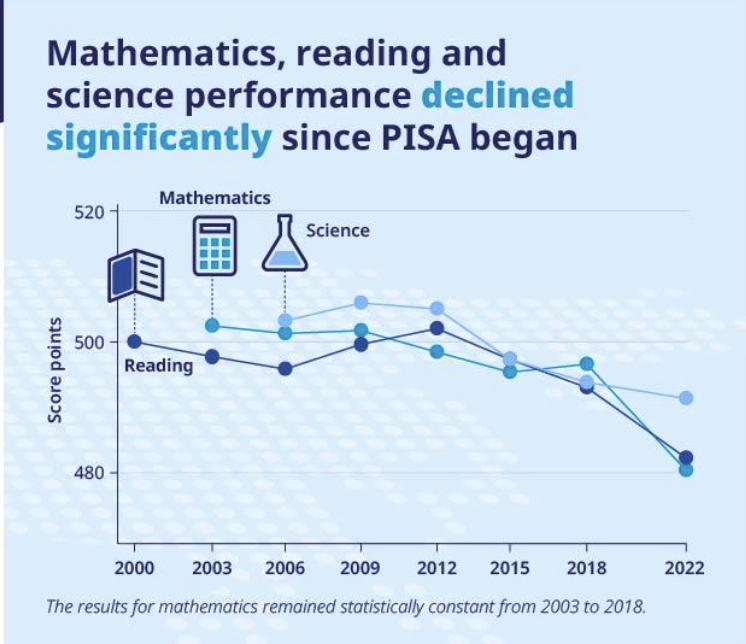In today’s fast-paced digital world, the human attention span is becoming an endangered species. Much like the quiet moments in a blockbuster action movie. Remember those? Neither do we! Let’s discuss solutions for reclaiming our attention spans!
We live in a world where attention spans are shrinking and the allure of digital distractions is ever-increasing. Parents face a challenging task. We have to our children develop the ability to focus and engage deeply with their learning and leisure activities. Here’s a comprehensive guide designed to help parents navigate this complex landscape.
Understanding the Challenge: The Problem Unfolds
It appears that our ability to focus has packed its bags and decided to go on a permanent vacation! This leaves us grappling with fleeting attention in almost every aspect of our lives. This is not just about being unable to sit through a three-hour movie without checking our phones. It’s about the broader implications for how we learn, interact, and remain engaged with the world around us. This reality is is exponentially bigger when it comes to our children’s attention span. Recent studies have illuminated a troubling trend: globally, students are struggling to keep up with educational demands, particularly in reading.
Research Says:
The Programme for International Student Assessment (PISA) examines what students know in math, reading, science. It also assesses what they can do with what they know. It provides the most comprehensive and rigorous international assessment of student learning outcomes to date.

These aren’t just abstract numbers. They reflect a real-world issue where students are finding it difficult to process complex information or remain engaged.
Parallel to this educational concern, by the time we get to college level, screen reading is overtaking other types of reading, which is affecting the way we read all material (Dewan, Pauline (2015) “Reading Trends and College-Age Students: The Research, the Issues, and the Role of Libraries,” Against the Grain: Vol. 27: Iss. 1, Article 11 ). In his book, Don’t Make Me Think, Steven Krug observes that most users only glance at a new page. Online reading is characterized by skimming pages and jumping from one link to the next, activities that interrupt linear thought processes and make us more impatient with sustained narrative (Steve Krug. Don’t Make Me think Revisited: A Common Sense Approach to Web and Mobile Usability (San Francisco, CA: New Riders, 2014).
Gone are the days when the biggest challenge was the weight of the textbook. Now, it’s about making it past the first few pages without a distracting buzz from our smartphones. How do we reclaim our attention spans?
The Media’s Quick Pace – Digital Distractions and Fragmented Attention Spans
Adding an additional layer to this narrative is the changes in entertainment media we consume. A study by James Cutting, a psychologist at Cornell University, found that film pacing has accelerated. The average length of a shot decreased from 12 seconds in 1930 to about 2.5 seconds today. This trains us to expect rapid gratification and constant change. It’s not an accident that Tik Tok gained popularity while a similar platform called vine did not get a foothold.
A Gloria Mark’s 2004 study reveals that the average attention on a screen is 2.5 minutes before we switch to another task. This digital behavior of hopping from one screen to another or constantly checking notifications is fragmenting our focus. It makes sustained attention increasingly rare.
The Implications and A Call to Action: Rediscovering the Joy of Reading
These findings paint a picture of a society where prolonged focus is becoming a relic of the past. Remember dial-up internet or silent films? The impact is multifaceted. It is affecting educational outcomes, workplace productivity, and even interpersonal relationships. If left unchecked, this trend could lead to significant cognitive and social challenges.
However, it’s not all doom and gloom. There is a beacon of hope in the simple yet powerful act of reading. Engaging children in reading from an early age can counteract the trend of attention fragmentation. By fostering a habit of deep reading, we can help develop critical thinking skills, empathy, and the ability to engage with complex ideas.
Our book subscription club is not just about delivering books; it’s about delivering opportunities for children and families to bond over stories. They explore new worlds and reclaim attention spans. Imagine a service that not only brings new books to your doorstep but also helps instill a love for reading that can last a lifetime!
Strategies for Reclaiming Attention Spans
- Create a Reading Routine Establishing a daily reading habit can significantly improve attention spans. Choose a variety of books that interest your child and set aside a quiet, regular time for reading. This not only improves literacy but also helps children learn to sit still and focus on one task for extended periods.
- Limit Screen Time Limiting the amount of time children spend on electronic devices can help reduce the impulse for constant stimulation. Encourage activities that do not involve screens, such as puzzles, board games, and outdoor play, which require deeper engagement and concentration.
- Engage in Focused Activities Together Participate in activities that require attention to detail and prolonged focus. This could be model building, arts and crafts, or even cooking together. Such activities help train the brain to focus and also strengthen the parent-child bond.
- Create a Distraction-Free Environment Designate a specific area in your home as a quiet zone where reading and homework are done away from televisions, computers, and other digital distractions. This space should be inviting and comfortable, stocked with all the necessary supplies to promote a good working environment and reclaim the attention span.
- Use Technology Wisely Technology isn’t the enemy, but it’s all about how you use it. Educational apps and tools can enhance learning if used appropriately. Set clear rules about when and how devices can be used, focusing on educational content or creative activities that require more than passive consumption.
- Encourage Physical Activity Regular physical activity can improve mental health, enhance concentration, and reduce anxiety and depression. Sports, dancing, or just playing outside can help reset a child’s focus and improve their ability to concentrate on other tasks.
- Monitor Progress and Adapt Every child is different. Pay attention to what works for your child and what doesn’t. Adjust routines, activities, and strategies based on your child’s responses. Celebrate successes, no matter how small, to encourage continued effort and improvement.
Remember, the goal isn’t just to enhance academic performance but to cultivate lifelong learners who can navigate the challenges of tomorrow with confidence and curiosity.
A Journey Toward Concentration
In conclusion, while we face significant challenges in maintaining our focus, there are tangible steps we can take to improve the situation. By encouraging reading, fostering environments that reduce digital distractions, and promoting educational strategies that engage rather than alienate, we can begin to reclaim our attention spans.
So, let’s turn the page on this chapter of distraction and start a new narrative—one where focus and deep engagement are not artifacts of the past, but foundations for our future! After all, if we can spend hours scrolling through social media, surely we can dedicate some of that time to the enriching pages of a good book. And remember, every page turned is a step away from the ping of a notification and a step toward a more focused and fulfilling life!


